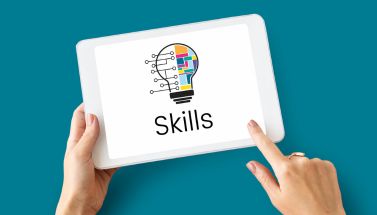
- by Team Handson
- June 12, 2025
Top Skills Recruiters Want for Data Science Jobs in 2025
As industries rapidly shift towards automation and intelligent decision-making, the demand for skilled data professionals continues to grow. By 2025, data science jobs will no longer be just about crunching numbers—they’ll demand a robust mix of technical expertise, business acumen, and communication skills.
So, what exactly are recruiters looking for in a modern-day data scientist? Let’s dive into the top skills that will set you apart in the evolving job market.
1. Python Programming Mastery
Python remains the dominant language in data science for its simplicity, flexibility, and vast library ecosystem. From data cleaning and visualization to deploying machine learning models, Python is indispensable. Recruiters consistently look for proficiency in Python frameworks like Pandas, NumPy, Scikit-learn, TensorFlow, and Matplotlib.
If you're considering enhancing your practical skills, many learners are turning to industry-oriented training programs that offer hands-on experience with Python in real-world scenarios, including those relevant to clinical research and life sciences.
Explore how internships and domain-specific applications are helping bridge the gap between academia and industry here.
2. Strong Foundation in Statistics and Mathematics
Data science is built on mathematical principles—especially statistics, probability, linear algebra, and calculus. Recruiters seek candidates who can interpret data distributions, make accurate predictions, and validate models using statistical techniques.
Without a good grasp of these foundations, even the most advanced machine learning algorithms can become meaningless. Therefore, recruiters prioritize applicants who can use math to solve real-world problems, especially in domains like biostatistics and clinical data management.
3. Machine Learning and AI Application
Understanding core machine learning algorithms—such as regression, classification, clustering, decision trees, and neural networks—is crucial. In 2025, emphasis will be on AI-powered decision-making, with recruiters expecting familiarity with both supervised and unsupervised models.
Employers value data scientists who can go beyond model building, demonstrating how AI integrates into business strategies. Today, there are specialized training paths that delve into applying AI in niche sectors. One such approach includes practical exposure to real-world datasets in regulated industries.
Curious about job guarantees in niche fields like clinical data analytics? Learn the truth and how to boost your employability here.
4. Business Intelligence and Domain Knowledge
While technical skillsets are crucial, a business-first mindset is what makes a data scientist truly valuable. Recruiters in 2025 will favor candidates who can turn raw data into strategic insights that align with business goals.
Whether it's healthcare analytics, finance, or marketing, having domain-specific knowledge increases your credibility and impact. It's not just about asking “what happened?”—you must also explain “why” and suggest “what next.”
5. Cloud Platforms and Big Data Tools
As data continues to grow exponentially, familiarity with cloud platforms like AWS, GCP, or Azure is becoming non-negotiable. Recruiters look for experience with big data ecosystems, including Hadoop, Spark, Hive, and Kafka.
These skills enable data scientists to work efficiently with massive, distributed datasets, which are common in real-world enterprise environments.
6. Data Visualization and Storytelling
Communicating findings in a clear, visual format is essential. Tools like Tableau, Power BI, and Seaborn help data scientists convert complex results into meaningful insights for stakeholders.
In 2025, recruiters will look for candidates who don’t just analyze data—but who tell compelling stories with it. Visualization isn't just an add-on; it’s a core skill.
7. Collaboration and Soft Skills
Gone are the days when data science was a solo activity. Today’s projects are cross-functional, requiring collaboration with product managers, engineers, and business leaders.
Hence, communication, teamwork, problem-solving, and critical thinking are considered just as important as technical ability. Many successful career transitions happen when candidates blend hard skills with soft ones effectively.
Looking Ahead:
To thrive in the competitive data science job market of 2025, you need more than just technical know-how. Recruiters are looking for well-rounded professionals—those who combine domain expertise, programming mastery, business sense, and communication ability.
If you're ready to future-proof your career, start by focusing on skills that blend hands-on application with real-world context. Whether you're exploring opportunities in clinical analytics or seeking internships to gain domain knowledge, taking the right step now can transform your trajectory.







